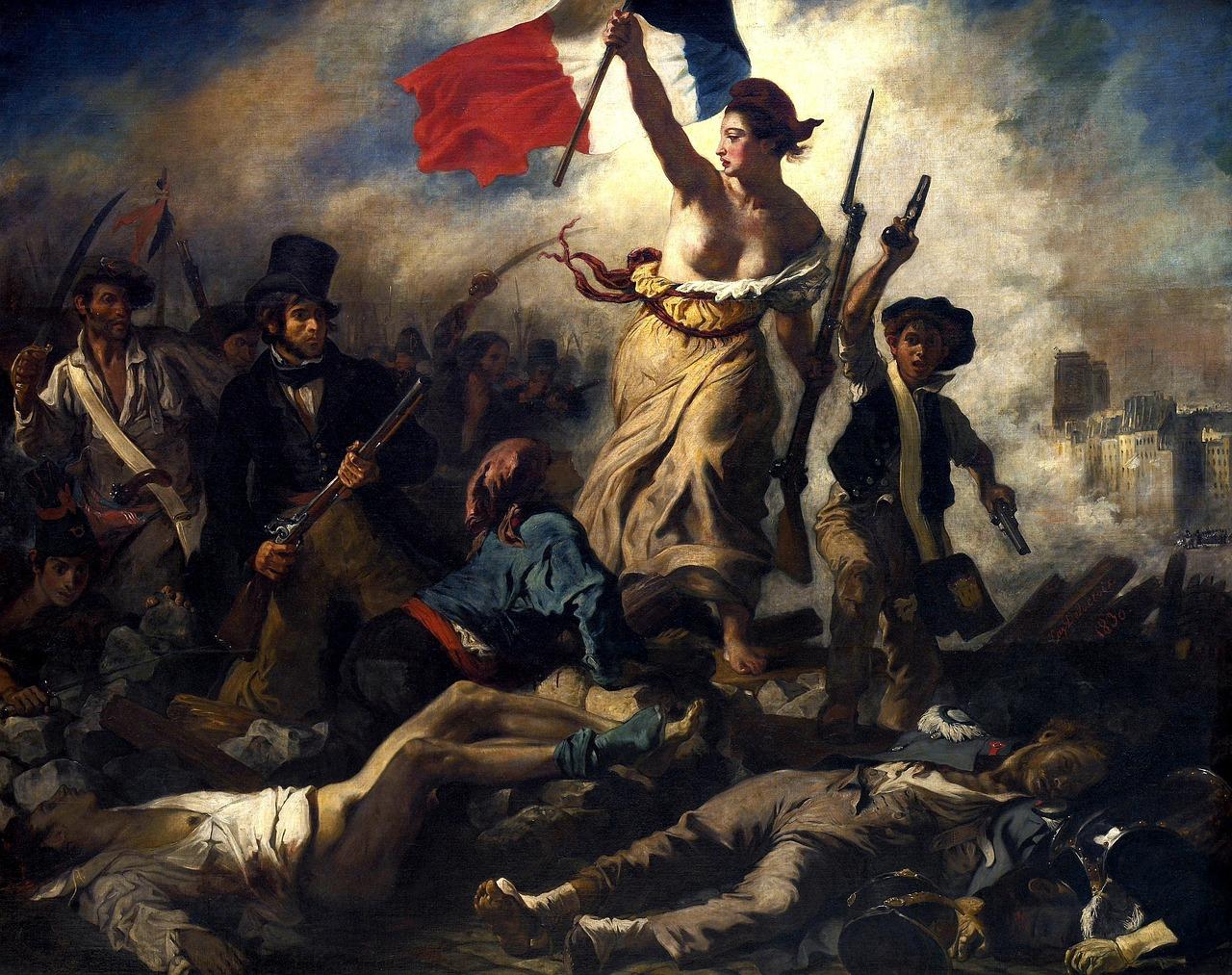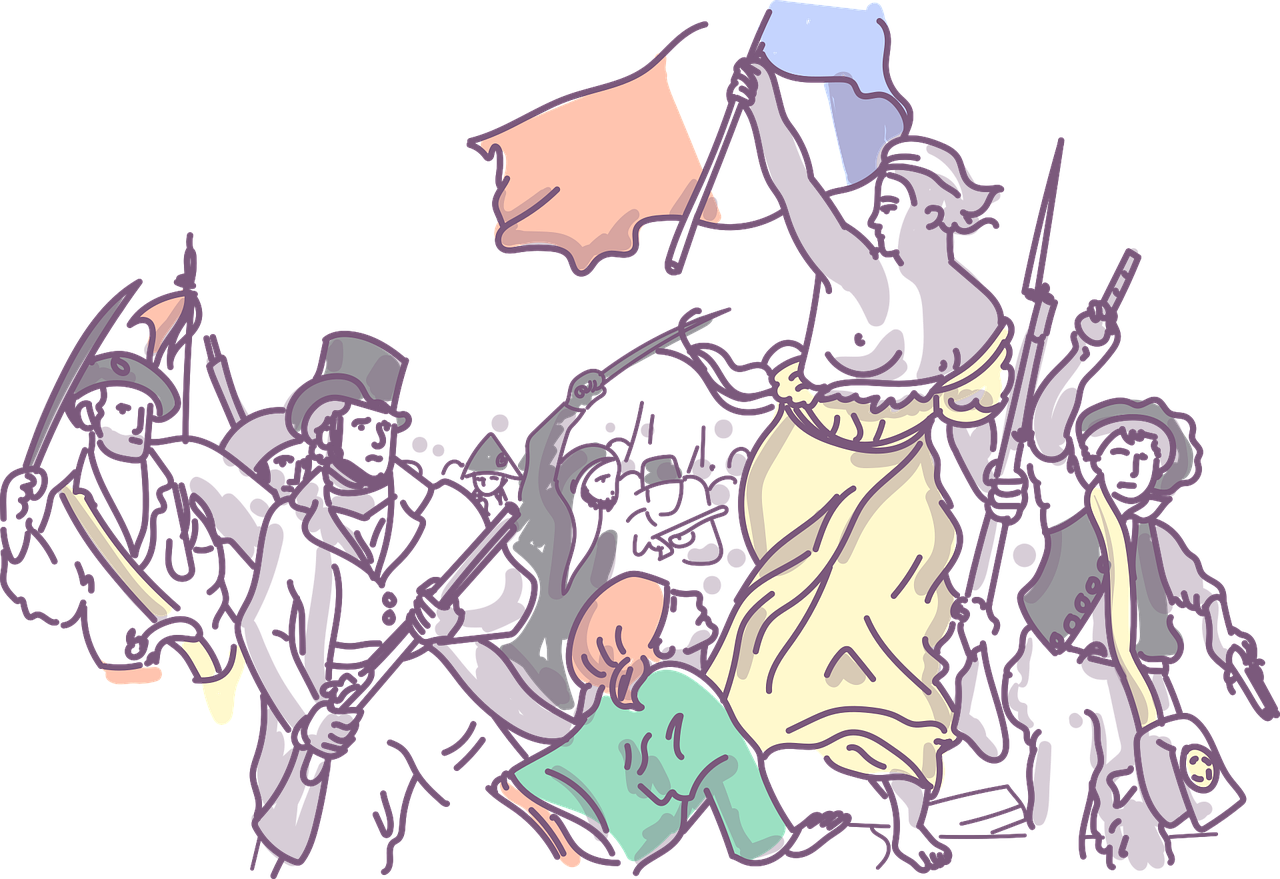The French Revolution, arguably one of the most pivotal events in history, continues to capture our imagination even after more than two centuries have passed since its occurrence in the late 18th century. The revolution was a time of radical change, when the French people rose against oppressive monarchy and fought for liberty, equality, and fraternity. But did the French Revolution achieve its goals? Was it a success or a failure? These questions continue to intrigue historians, scholars, and individuals alike.
The French Revolution was not without its share of controversy and violence. The period was marked by the descent into chaos, as the revolutionaries carried out mass executions, including that of King Louis XVI and his queen, Marie Antoinette. The violence and bloodshed have raised questions about why the French Revolution took such a violent turn, and whether this violence was necessary for the revolution to succeed.
But why does the French Revolution matter today? Beyond its historical significance, the French Revolution holds valuable lessons for societies worldwide. It highlights the dangers of unchecked power, the importance of popular participation in government, and the enduring struggle for social justice. By examining the achievements and failures of this revolutionary period, we can gain insights into the complexities of political, social, and economic transformations.
In this blog post, we will delve into the legacy of the French Revolution, exploring whether it can be deemed a success or a failure. We will analyze the goals of the revolution, examine the reasons behind its violent nature, and discuss its relevance in our modern world. Join us as we embark on a journey to uncover the moral lessons and lasting impact of the French Revolution, as we seek to understand its true significance in shaping our history and society today.

Was the French Revolution a Success or Failure
The French Revolution, ah, what a rollercoaster of a historical event! But let’s get down to business and answer the burning question: Was the French Revolution a success or a total flop? Well, it’s not as black and white as Marie Antoinette’s fashion choices, my friend. The revolution had its highs and lows, successes and failures, just like any dramatic reality show. So, let’s dissect this juicy topic and dig into the details!
The Winds of Change
When the French Revolution blew through the doors of Versailles in 1789, it brought a whirlwind of change. The revolutionaries wanted to overthrow the monarchy, establish a constitutional government, and abolish the oppressive social hierarchy. Talk about a bold mission! And guess what? They actually succeeded in doing all that. The revolution sparked a shift in power, clearing the way for a more democratic France. It’s hard not to applaud their tenacity and determination.
The Reign of Terror: Not So Terrific
Okay, hold your berets, because things are about to take a dark turn. With great power comes, well, a lot of chaos. The execution of King Louis XVI and Queen Marie Antoinette may have satisfied the revolutionaries’ thirst for revenge, but it also paved the way for the Reign of Terror. Cue the spooky music! Maximilien Robespierre and his guillotine team went on a chopping spree, executing anyone suspected of opposing the revolution. It turned into a bloodbath, dampening the initial spirit of liberty and equality. Oops!
Napoleon Bonaparte: The Unexpected Cameo
Just when you thought the French Revolution was running out of twists, along comes Napoleon Bonaparte, a man with big ambitions and an even bigger hat. Napoleon seized power in 1799, crowning himself as Emperor of the French. Some might argue that his rise to power marked the end of the revolution’s ideals. However, you can’t deny that Napoleon brought stability, reformed laws, and introduced various modernizations in France. Two steps forward, one step back, huh?
Legacy of Liberty and Equality
Now, time to unveil the grand finale! Despite all its ups and downs, the French Revolution left an undeniable legacy. The revolt against the monarchy sparked a desire for democracy, freedom, and equality that would resonate for centuries to come. The revolution’s ideals served as inspiration during future struggles for human rights and democracy worldwide. So, while the French Revolution may have stumbled along the way, ultimately, it left an indelible mark on the course of history. Bravo!
In the epic saga of the French Revolution, success and failure danced hand in hand like guillotine executioners at a masquerade ball. The revolution achieved some of its goals but stumbled along the way with the Reign of Terror and Napoleon’s rise to power. Nonetheless, its legacy lives on, serving as a reminder of the struggle for freedom and equality. So, in the end, I’d say the French Revolution was a mixed bag, a turbulent tale that continues to captivate historians and lay the foundation for modern democratic societies. Vive la Revolution!
Tags: French Revolution, success or failure, Reign of Terror, Napoleon Bonaparte, legacy, democracy, freedom, equality

FAQ: Was the French Revolution a success or failure
Did the French Revolution achieve its goals
The French Revolution sought to bring about radical political and social change in France. It aimed to overthrow the monarchy, establish a republic, and end the privileges of the nobility and clergy. However, the extent to which it achieved these goals is a matter of interpretation. While the revolution did successfully overthrow the monarchy and establish a republic, it also resulted in a period of political instability and violence. Ultimately, the revolution’s goals were not fully realized, as France experienced a subsequent rise of Napoleon Bonaparte and a return to authoritarian rule.
Was the French Revolution a success or failure
Determining the success or failure of the French Revolution depends on how one evaluates its outcomes. From a purely political standpoint, the revolution can be seen as a mixed bag. It successfully toppled the monarchy and paved the way for the rise of republican ideals. However, it also led to a period of chaos and uncertainty, followed by the rise of Napoleon and the reestablishment of authoritarian rule. Furthermore, the revolution’s goals of achieving social equality and justice were not fully realized. Therefore, it can be argued that the French Revolution was a combination of both success and failure, depending on the criteria used for evaluation.
Why was the French Revolution violent
The French Revolution was marked by significant levels of violence for several reasons. First and foremost, the revolution sought to challenge the existing social and political hierarchy, which naturally sparked resistance from those in power. Additionally, the widespread economic inequality and poverty prevalent in France fueled popular discontent and resentment towards the ruling classes. This led to violent uprisings, such as the storming of the Bastille, as people sought to express their grievances and effect change. Furthermore, the revolutionaries themselves became divided, leading to power struggles and internal conflicts that often escalated into violence. Overall, the combination of socio-economic tensions, political upheaval, and internal divisions contributed to the violence of the French Revolution.
Why does the French Revolution Matter
The French Revolution holds immense historical significance, as it marked a turning point in world history and shaped the modern world in numerous ways. Firstly, the revolution challenged the traditionally dominant powers of monarchy and aristocracy, paving the way for the rise of democratic ideals and the spread of republicanism across the globe. The revolution also had a profound impact on the concepts of liberty, equality, and fraternity, which remain crucial principles in modern political thought. Furthermore, the French Revolution ignited a wave of nationalist movements and inspired revolutions in other countries, leading to the eventual downfall of monarchies across Europe. In essence, the French Revolution serves as a powerful reminder of the transformative potential of social and political movements.
What moral lesson is learned from the French Revolution
The French Revolution serves as a cautionary tale, reminding us of the inherent dangers that can arise when ideals are pursued without moderation or respect for human rights. While the revolution aimed to bring about positive change, the excessive violence and extremism that accompanied it demonstrates the importance of finding balance and preserving social cohesion. It teaches us the importance of addressing socio-economic inequalities and grievances in a peaceful and inclusive manner, rather than resorting to extreme measures. The French Revolution encourages us to pursue justice and change in a way that upholds the values of humanity, empathy, and respect for the rights of all individuals.
In conclusion, the French Revolution remains a complex and multifaceted event in history. It achieved some of its political goals while facing challenges and ultimately giving rise to a new form of authoritarian rule. The violence it witnessed serves as a reminder of the consequences of societal upheaval, while its historical significance lies in its promotion of democratic ideals and the lasting impact it had on the world. By learning from the mistakes and successes of the French Revolution, we can navigate future sociopolitical changes with greater wisdom and understanding.
